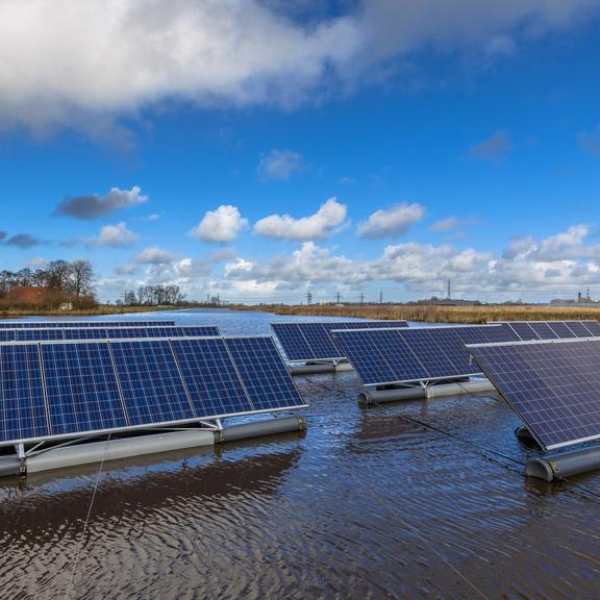Report on prospects for electricity from water presented

Report on prospects for electricity from water presented
The Netherlands – the land of water. But what about renewable energy from water? In recent years, various initiatives have been developed in the water sector to generate electricity from water and contribute to a more secure electricity supply. Many of the technologies involved are innovative and not yet widely used in the Netherlands. Witteveen+Bos and CE Delft – under assignment to STOWA, Rijkswaterstaat and the Ministry of Infrastructure and Water Management – have produced a report on the prospects for producing electricity from water, in which they present the potential of renewable energy generation from water and the impact it would have on the water system.
As stipulated in the climate agreement, by 2030 70% of electricity must be generated from sustainable sources. For 2050, the target is 100%. If we want to maintain a reliable supply of electricity, we will need to implement a wide range of measures. This study showed that energy from water is another option we can call upon. More than 10% of our electricity demands can be provided by water – a modest but nevertheless significant percentage.
Short-term opportunities
The techniques that can be rolled out straight away and that can make a significant contribution to the 2030 targets for sustainable electricity generation and storage are:
- solar PV panels on lakes
- hydropower at weirs near large rivers
- hydropower at weirs near streams and watercourses
- flexibility through smart pumping
Together, these four techniques have the potential to cover about 2% of national electricity demand by 2030.
Innovation opportunities
Several techniques are potentially interesting, but up until 2030 they primarily need to be upscaled – for example, via pilot projects – to stimulate further technological and/or price developments. Together, they have a technical potential of fulfilling around 9% of the national electricity demand. The techniques are:
- energy derived from different salinity levels between fresh and salt water
- tidal energy with decay at flood defences
- tidal energy with current
- wave power
- solar PV panels at sea
- flexibility through conversion to green hydrogen
This study, commissioned by the authorities responsible for water management, provides a good starting point for the ‘electrical energy from water’ roadmap which Dutch Minister Wiebes promised at the request of the House of Representatives (Tweede Kamer). Rijkswaterstaat the various water authorities can stimulate the development of this potential by facilitating pilot projects, seeking collaborations, and addressing considerations and issues at the right level. Together with the energy sector, water sector, research institutes, and companies, the roadmap can lead to an investment and innovation agenda.